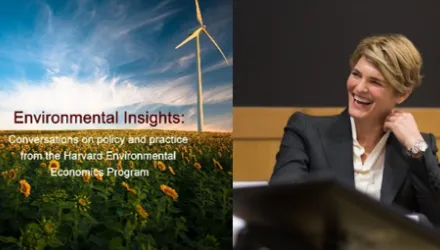Reduced Carbon Emission Estimates from Fossil Fuel Combustion and Cement Production in China
Author
Zhu Liu

Author
Dabo Guan
Author
Wei Wei
Author
Steven J Davis
Author
Philippe Ciais
Author
Jin Bai
Author
Shushi Peng
Author
Qiang Zhang
Author
Klaus Hubacek
Author
Gregg Marland
Author
Robert J. Andres
Author
Douglas Crawford-Brown
Author
Jintai Lin
Author
Hongyan Zhao
Author
Chaopeng Hong
Author
Thomas A. Boden
Author
Kuishuang Feng
Author
Glen P. Peters
Author
Fengming Xi
Author
Junguo Liu
Author
Yuan Li
Author
Yu Zhao
Author
Ning Zeng
Author
Kebin He
Related Programs




